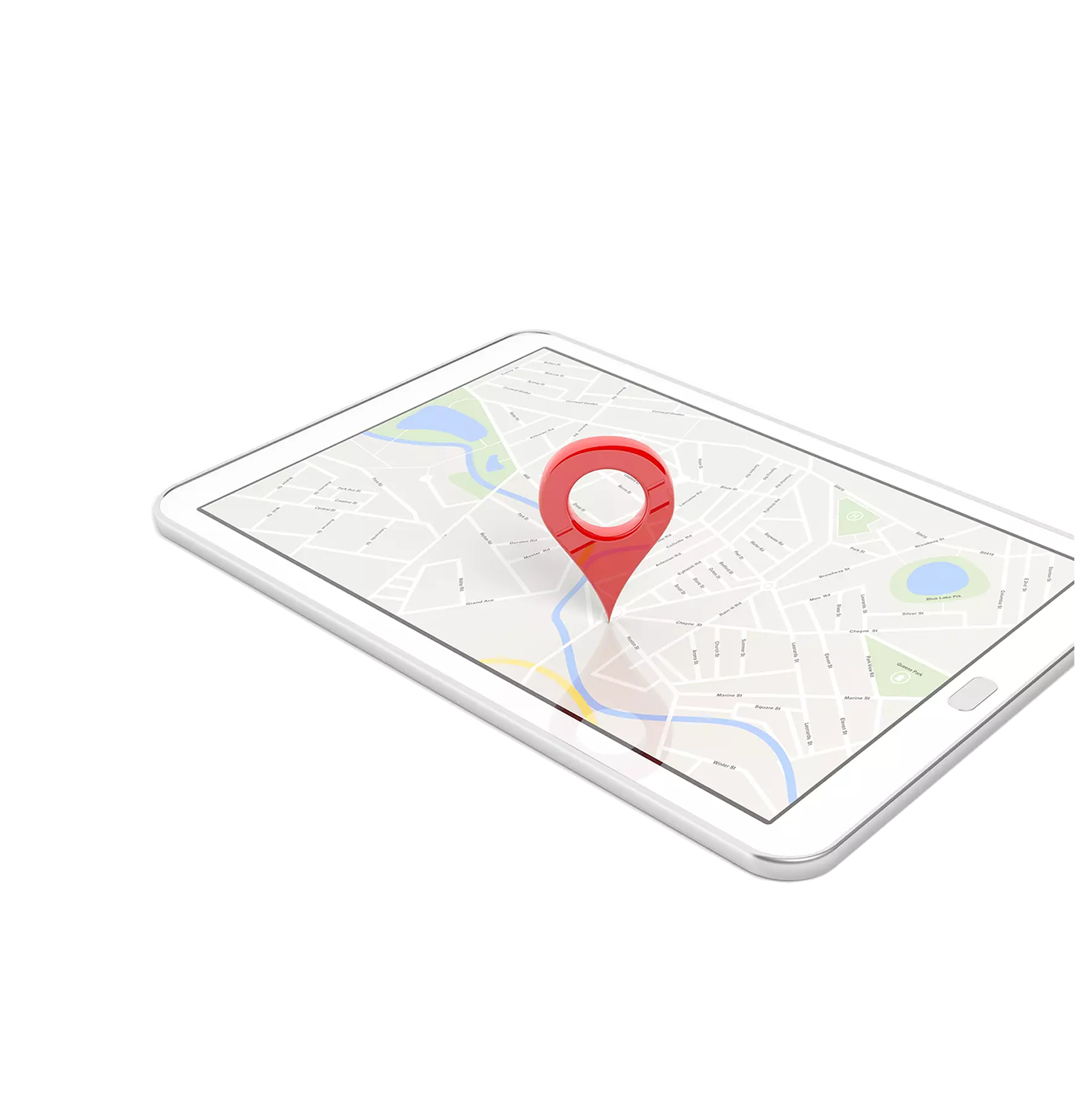How a Transport Management System Empowers Your Entire Organization
How a Transport Management System Empowers Your Entire Organization
How a Transport Management System Empowers Your Entire Organization
Jun 5, 2025
 John McCurdy | Senior Content Writer, Marketing
John McCurdy | Senior Content Writer, MarketingShort on Time? Here’s an At-A-Glance Summary
See how each department of your organization can benefit with a transport management system:
Warehouse and Transportation: Digitize paperwork, standardize carriers, streamline dock scheduling and gain full visibility.
Purchasing: Track vendors, validate orders, monitor inbound shipments and leverage freight spend data.
Customer Service: Access real-time tracking, follow customer SOPs, generate quotes and resolve issues quickly.
Logistics Leaders: Optimize carrier selection, monitor fees and use analytics for continuous improvement.
Finance: Automate audits and payments, track spend and generate accurate financial reports.
C-suite and Executives: Get real-time, enterprise-wide insights, identify risks, scale efficiently and plan strategically.

There are no easy jobs in logistics operations. That's probably not news to you—if you’re reading this, there’s a good chance that your job comes with a front-row seat for the complexities and challenges of the distribution industry. It’s not for the faint of heart.
Customer expectations are on the rise, as is the frequency of supply chain disruptions. Carrier selection isn’t an easy exercise, what with so many variables and requirements to account for. Supply chain visibility, as crucial as it is, can be difficult to maintain. And transport costs aren’t going down anytime soon.
The realities of today necessitate that logistics businesses—as well as retailers, manufacturers, processors and distributors that engage in transportation processes—are equipped to handle these considerations. A transport management system (TMS) is the best solution, giving everyone in your organization the tools they need, digitizing and automating common tasks and pooling all your data in a unified platform.
To illustrate just how valuable such a solution can be for every role in your organization, we’ve broken down common pain points and the features of TMS systems that solve them by department. Along the way, you’ll learn more about the key benefits of this versatile software and gather the basis of your business case, ready to convince the necessary stakeholders across your company to invest in a TMS solution.
Warehouse and Transportation Teams
Every transport business is different, and warehouse and transportation teams often overlap or have similar responsibilities depending on the size and setup of a company. But regardless of who’s handling them, paper records—like bills of lading (BOLs), packing lists, inventory transfer requests, etc.—are a hassle, not to mention wasteful. A TMS’s document management features help you reduce or even get rid of paperwork by digitizing all of your documents, not to mention eliminate the risk of error during data re-entry.
The fact that standing operating procedures (SOPs) vary by customer also creates additional complexity. Some have preferred carriers, while others have “do not use” carriers or other requirements. Relying on one long-time employee to retain that “tribal knowledge” won’t work—especially not when the responsibility of carrier selection falls to different departments in different circumstances—so transport management systems offer optimized mode and carrier selection with configurable logic to enable all employees to ensure customer preferences are met.
Depending on your business’s setup, the transportation team may handle quoting and estimating, and the warehouse department is often consulted in the process. That’s why TMS gives you easy access to all of your data—financial, inventory, supply chain, you name it—so that every user can generate accurate quotes with the software.
Dock scheduling features help you mitigate congestion for both inbound and outbound shipments so you can maintain order and organization in what could otherwise be a chaotic part of the warehouse. Better still, you can use a transport management system’s shipment console to get a 360-degree view of your warehouse floor and staging activities.
This gives you total visibility and helps you ensure that pallets aren’t allocated to the wrong order or left behind during the busy loading stage.
Purchasing Team
When it comes to procurement, you’ve got to have visibility into your supply chain and inventory, because a delay or being in the dark when product is arriving can grind your business to a halt. TMS has you covered with a detailed record of all domestic and international inbound orders, and exception handling capabilities allow you to deal with issues like orders shipped with the wrong contents or paperwork.
Poor vendor compliance—late shipments and missing orders, for example, for example—can lead to lower customer satisfaction and higher shipping costs. To support the purchasing department on this front, transportation management systems let you measure vendor compliance by purchase order (PO) to track performance.
PO validation functionality also helps you prevent duplicate shipments sometimes sent by vendors even though you've closed the order—that way, they’re not cluttering the warehouse. Lastly, by providing insight into freight spend by vendor, mode and region, a TMS enables your purchasing teams to make smarter sourcing decisions and negotiate better rates.
Customer Service
If your customer service representatives don’t have complete information on account histories, shipments and customer requirements, they’ll be facing an uphill battle. When they’re learning about problems like lost shipments, delayed orders, incorrect paperwork and wrong carrier choice from clients who are already disappointed and upset, they're forced to do damage control rather than proactively ensuring customer satisfaction.
Here the real-time shipment tracking a TMS system offers is invaluable, as your team has all the information necessary to get ahead of exception fallout and respond to customer inquiries quickly and accurately. The software also enables compliance with customer SOPs, including carrier preferences and custom labeling requirements, so that they’re fully satisfied with their order—reducing the number of inbound queries into your service team.
Furthermore, transport management systems empower your customer service department to generate accurate quotes—including prepaid and add (PPA)—a significant advantage given that clients often inquire about costs while ordering and their requests would otherwise have to be re-routed to the warehouse.
Logistics Leaders
If you lead a logistics department, you know the pressure to reduce costs is constant—and without clear insights, justifying your decisions to the C-suite gets tough. That means you not only need granular data, but tools that enable your entire transportation department to focus on improving efficiency every day.
Fortunately, you can with the optimized carrier selection that transport management system offers—the solution determines your optimal carrier according to rates, timeline, service rating and your routing rules, saving you time and money. The software also gives you visibility into carrier fee changes, helping you identify which are avoidable so that you can act to address them.
Meanwhile, an advanced TMS offers metrics and reporting capabilities, allowing you to pin down operational challenges like poor vendor compliance and unexpected customs delays so that you can drive continuous improvement. What’s more, TMS gives you agility in times of disruption with a wide carrier selection and supply chain transparency, not to mention increased productivity through process automations.
Finance Department
What happens when you receive a carrier invoice today? Do a team of auditors spend hours each week checking and chasing discrepancies, driving up your labor and administrative costs? Or does it fall to the shipping department, where they don't have the time to do much more than spot-check for glaring errors, leaving you vulnerable to big variances and overpayments? Neither is appealing, but both are extremely common.
You’ll be glad to know that TMS systems have freight audit and pay functionalities, which vet invoices to ensure shipping charges are correct, saving you time on manual review and reducing overpayments. Additionally, these solutions enable you to measure itemized expenses, financial performance by period and your transportation spend by mode, carrier, customer and more, allowing you to analyze trends and informing your strategy.
Accurate accrual reports are a must-have for the finance team since they’re vital for budgeting, forecasting, end-of-month closings and more—so transportation management systems provide them in convenient, consolidated formats. And a reputable TMS automates the critical general ledger coding process according to your accounting logic—a task that’s nearly impossible without the right tools.
C-Suite and Executives
Chief executives are expected to have all the answers. No one can achieve that level of insight, but you can make better decisions and be the guiding force that your organization needs with the help of a transport management system. The software puts a real-time view of your supply chain, finances, customer activity and more at your fingertips, allowing you to account for risks and opportunities to formulate a winning strategy.
Meanwhile, the reporting capabilities and performance metrics that TMS offers help you identify areas for improvement. You’ll be able to pinpoint problems before they come to a head and match or exceed your competitors’ progress, which is critical in an industry that faces increasing customer expectations.
Transport management systems also facilitate scaling efficiently and empower growth without the need for additional human resources. Without a TMS, an increase in your order volume might be difficult to handle given the time it takes to select carriers, shop for rates and document shipments manually. Since the software automates those processes and many more, you can ramp up without having to add to your staff.
Lastly, the value of peace of mind should not be underestimated. At the C-suite level, you’re not focused on just one or two key performance indicators (KPIs)—every metric matters, as does the big picture, intangibles like employee experience and so much more. A transport management system takes care of it all with features and benefits for the whole organization, giving you assurance and your employees the tools to be effective.
Driving Ever Forward With Aptean
By now you’ve got a good idea of how each of your departments can leverage TMS software. It’s not an exaggeration to say the solution can have an organization-wide impact, helping your staff be more productive and getting more business done every day.
Of course, the idea that any transport management system can produce the positive effects that we’ve described just isn’t true. You need one developed by dedicated professionals who know the logistics industry, and it also needs to incorporate the latest technology. And it wouldn’t hurt if it could be deployed from the cloud.
As you might have guessed, Aptean TMS is all that and then some. It’s backed by passionate and responsive support and service teams, and it offers advanced industry-specific capabilities, like a 3D load builder powered by artificial intelligence (AI) that optimizes loads for safety, stability and ideal space allocation, all automated.
What's more, the enhanced freight audit and pay functionalities capture up to 40 fields from invoices and cross-check them for accuracy to flag any discrepancies in shipping charges. And finally, you can implement it alongside other Aptean solutions, like any in our full suite of transportation management solutions, for an even greater edge.
Ready to learn more about our transport management system and how it can help your organization reach its goals? Contact us or request a free demo.
Unlock the Value of Your Logistics Operation With Aptean TMS Solutions
Book a demo at a time that suits you and discover how you can run a leaner logistics operation—with fewer surprises and more control.



